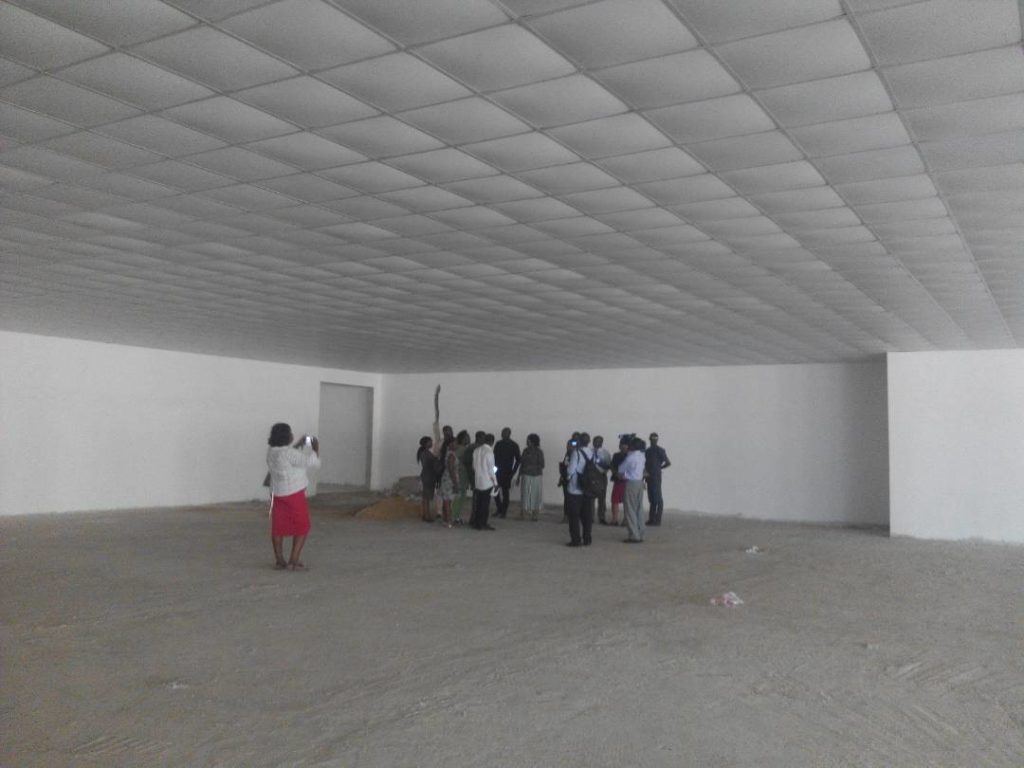By Ogar Monday
The Calabar Pharmaceutical company will be completed in April 2018 says the Managing Director (MD) of the facility, Mr. Farhan Ahmad Khan.
Mr. Khan disclosed this to journalists during a media tour of the facility led by the Commissioner for Information and Orientation, Mrs. Rosemary Archibong where he said that the flooring and all other works is nearing completion and the machines needed for the company to kick-off are already in town and just waiting for the civil engineering work to be done with for them to be installed.
Mr. Khan said that the main focus of Calapharm was mother and child health, and it will compliment the state health insurance scheme tagged ‘Ayadecare,’ since people signed into the program will need medicines and the money doesn’t have to go out of the state for the procurement of such.
“Our main focus is on mother and child health. We will launch the pharmaceutical company with initial 40 products. We will produce syrups, tablets, syringes and injections. One thing that we don’t produce in Nigeria is vaccine, which we in Calapharm will produce early next year,” he said.
On complimenting the insurance scheme, Mr. Khan averred that: “We are seeking to complement Ayadecare program with quality medicines, and this will boost the economy of Cross River State. The cost of the drugs will be lower that all people of the state will be able to afford them.”
And, the Commissioner for Commerce and Industries, Mr. Peter Egba said that some of the vaccines to be produced include those for Meningitis and Lassa fever which have claimed over 1000 lives since the last outbreak in Nigeria.
“The drugs will be produced locally. This is a gigantic project. We have the laboratories where the drugs will be taken through all scientific processes and analysis; we have the section in which the packaging will be done. The idea behind this project is to basically reduce, if not totally eliminate importation of drugs into the country,” Egba said.
However, Mr. Khan said that the raw materials will be imported because most of the chemicals required to produce the drugs are not available in the country. “We will import the chemical for now, but we will do all the medical works and packaging here,” he said.

Mrs. Archibong on her part said the industrial layout which houses Calapharm, Rice City and the Garment factory when completed, the park has the capacity of transforming the state into an industrial hub, with the capacity to export and yield foreign exchange for the country while providing jobs for the teeming youths of the state.
She said the state is committed to have the project completed at record time and have the various companies with interest in the park move in while Mr. Egba disclosed that the idea of the industrial park is to have a concentrated area where infrastructure such as roads, security among others, are already provided for by the government, making it easier for companies to set up shop.
He added that the Cross River State Government has applied to the federal government for the park to have an Export Processing Zone (EPZ) status in terms of grants, waivers, tax reliefs’ and other incentives enjoyed by other EPZs.
On the rice factory, he posited that there was a huge technical difference in the way Cross River and other states produce rice. “The technology is of hybrid seedlings that will be planted in such a way that farmer could fold it like rug carpet and take it and spread on the farm.”
The industrial park was commissioned by the then acting President Yemi Osinbajo in March 2017.